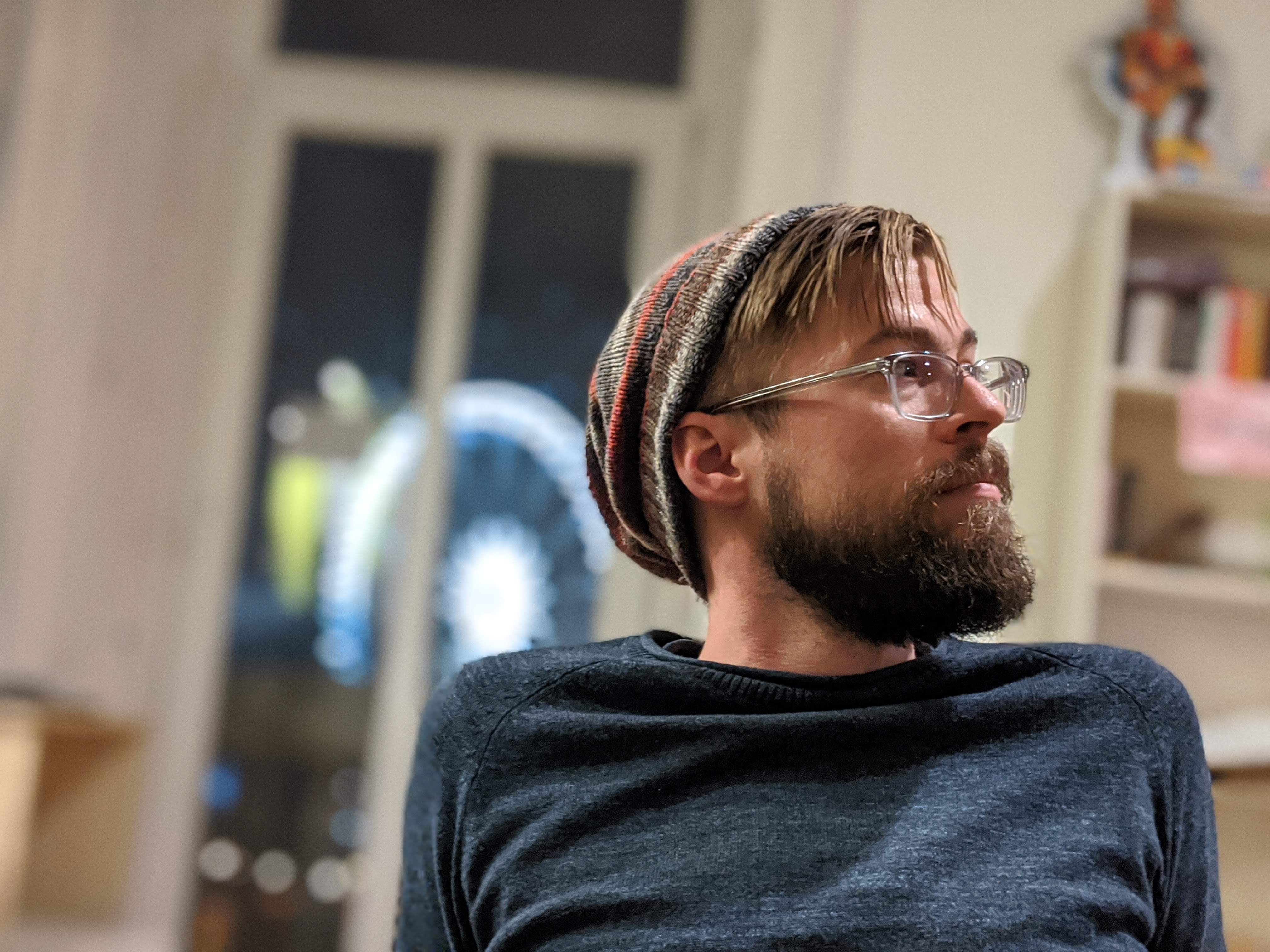I started fairly recently (probably somewhere between nine and seven years ago; time isn’t my strong suit, cut me some slack) on Debian. Now I’m on Arch Linux.
In 1993, a guy I knew had a Linux server running in his dorm room. I think it was a 0.9x kernel. He dialed into the University network and I was able to telnet in through my own dial up connection to the University. He was running Slackware.
Within a couple months, I downloaded all 30+ 1.44 diskette images and built my own Slackware server. In that time I used Slackware and Red Hat (which then became Fedora before RHEL became a thing). Now I’ve pretty much settled on Debian for servers and Arch for desktop/laptop systems.
I dabbled in Linux for a while (since 2009, college). I did some distro hopping for a while ( Ubuntu, opensuse, mint, Debian). I finally mained Linux after windows 8 came out, ugh.
I mained Manjaro and then switched over to Endeavour. I couldn’t be happier. My opinion of Linux keeps getting better and better, but that’s probably because I have to fix my parents computers once in a while. They run windows 10 now. I hate it. Ads in the start menu?! Kill me now.
Valve with Proton also helped a lot. Playing games on Linux is easy as pushing play. If I have any problems, I just wait for a glorious egg roll to drop.
Back in 1996 I was studying computer science, and one of my courses required me to write programs in Prolog. Rather than go to the school to work on the computers there, I bought an enormous book (I think it was a printout of all the man pages) that had Yggdrasil Linux CD-ROM, and ran it on my home desktop.
In university in 2000. Now I am a Linux DevOps Engineer.
Currently writing some python so we can get a report out of our shiny new harbor docker registry.
That job sounds awesome. You nerd out about Linux and get paid for it?
For sure! Most DevOps jobs are like that. Honestly, my company cannot hire competent Linux admins fast enough. If you have zero experience but a sweet portfolio you’ll probably get hired. The intern I just got up to speed has zero work experience at all.
Well, I’m still in Uni now, so internships sound like something that I should prioritize?
If I was still in uni I’d put all my time into software engineering and go straight to making software. DevOps is fun but you’ll make way more money being a software engineer. My code is shit compared to a legit developer.
[e] actually I think embedded linux systems are going to continue to become more and more the rage. Low power, super efficient. Think huge advancements in robots in a very short while when absolutely every sensor can run a ghz SOC a quarter the size of a fingernail.
Get, good, at, C.
I haven’t touched it in decades but I’m coming back to it so I can make Adruino/ESP32 projects.
If I did it again I would go into mycology and run around forests to collect samples, while some forests still exist.
@aniki @CwilliamsYou do that after you sell your startup to google and cash out for the rest of your life.
There is much more to life than being a screw in the machine that is killing all of us.
@aniki
Slackware in 93 or 94, on a 386DX40 with 4MiB ram and a 40MiB HDD. A friend and I split downloading the disk sets 1/2 disks a day on our limited ISP time.
When Netscape came out, I ran it on that machine. It took literally 30 minutes to start (with much swapping), but was actually usable thereafter.
2001, I was 19 in USAF tech school in Biloxi, Mississippi, just bought a second hand computer from someone else in the dorm and needed a budget OS, and the local BX/PX had a copy of Corel Linux for $30. I had no idea WTF it was at the time, I thought it was just some kinda cheap bootleg Windows or something, something with half-ass compatibility like OS/2. I had no clue how to use it and I couldn’t get any familiar programs to work, so I just paid another dude like $20 to burn me his copy of Windows 2000 for me.
Didn’t even realize its potential until later, 2004 when I got a civilian IT job. Now Debian has been my daily driver for ten years.
Edit: oh yeah, the box came with an inflatable penguin, which I gave to the dorm guard on duty when I got back because he recognized it and I didn’t think anything of it. If you ever see this post I want my penguin back now, dude.
Well I’d been on and off for years, but never made the switch due to games. Then windows 8 came out with a terrible privacy policy.
I’m an open book and wouldn’t mind sharing most of my data but I just think it’s improper behavior to make assumptions and to forgo consent. Privacy must be the default. I wouldn’t mind donating most of my data to progress say AI research, but it should be clear to everyone that it is my data and I decide what happens to it. And when it comes to security I believe that proper investigations and warrants are still a thing.
So ya I made the switch and sacrificed the ability to play certain games. Plenty of stuff to play any way. And this issue has been mostly rectified by now as there’s maybe only 5% of games that don’t run properly. Recently I had to refund baldur’s gate 3 due to some visual glitches. At this point I also feel that the developers are responsible for fixing these minor issues.
As a programmer I think it’s a more fitting OS all around for me regardless.
Mid 90s at work as a project support technician in Sony Broadcast R&D in the UK. Slackware, then red hat mostly. Installed Linux boxes in various digital TV stations in London in 1999/2000, used to insert interactive games into the broadcast stream.
I was a sysadmin from 99 to about 2018, from then onwards I’m more DevOps. Done a bunch of stuff with CentOS too, including migrating 500k email accounts to our hosted solution. Other cool stuff included a VMware based development environment using Foreman + FreeIPA to auto provision dev VMs with all sorts of puppet code.
Now at home I run Fedora and work on macOS, writing Terraform and Python. And some nodejs too.
Been at it a long ass time now lol
I am also fairly new to the game. I had an iMac from around 2010 that was starting to show its age. Newer macOS versions were glacial on it. I eventually realized they were meant to boot off SSDs, but my options in that regard weren’t great. I would either have to take the whole thing apart to replace the internal drive or live with USB2 speeds on an external SSD. Then it dawned on me I could just put Ubuntu on there and call it a day. This worked great and bought me a few more years out of that machine.
More recently, we started buying threadripper workstations at the office for scientific modelling. These have since migrated into a server room where they are currently acting as a small compute cluster.
And most recently, I’ve been tinkering around a bit on my Steam Deck. It’s a little walled-garden-ish but it let me put VSCode and a few tools on there so I’m playing around.
I started around 2018, using crouton to run Ubuntu on a Chromebook so I could have better functionality. I went back to Windows for a while, then I started using Pop!OS as my daily driver last year. I still don’t know if I love it, but I’m sticking with Linux of some flavor going forward.
January 2023, started effectively with Fedora and I’m still on Fedora, before that I used Ubuntu in 2013/2015 but was not on my machine.
First experience was trying to dual boot Slackware and Windows ME on the family computer in 2003 after getting a magazine with the install disc on. Nuked the Windows install and got banned from the family PC for a while.
Then I got my own laptop with Windows 98 on it at 18. I’d just found dyne:bolic which was one of the first Linux live CDs if I recall correctly and was designed to work on older hardware (this was mid 00s). That machine served me well for 2 or 3 years.
A few years of bouncing between various distros and Windows followed. Eventually I made the full switch in about 2012 first to Ubuntu then Debian which I’ve been using for the last 5 years or so.
Started in college with Mandrake Linux. Used it off and on over the years, though I kept switching back. I recently settled on Pop_OS. Part of what kept me switching back was not having the time to tinker with it. Now that it mostly works, it’s become my daily driver.
Around 25 years ago I had read about this Linux thingy in a computer magazine somewhere in the middle east. We had a Windows 95/98 PC. I got my hands on some Red Hat CDs (or floppies) and managed to install it on the PC. It booted into a prompt, but I had zero knowledge of Linux or any Unix-like OSes and had absolutely no idea of man pages. Didn’t manage to start the graphical environment. I took my case and rode my motorcycle to some computer engineering student (the most knowledgeable person I had access too, we had no Internet) and asked him for help. He told me it’s my graphics card (some old ISA VGA card), but couldn’t help more. In the computer market no one knew about Linux either. So my first try to switch to Linux failed.
Fast forward 25 years… I’m surrounded with Linux and computers in general. Desktops, laptops, single board computers, virtual machines, local or remote. I started with Ubuntu (free CDs posted to my poor country…) with Gnome and later gnome shell, tried Debian, Mint, Parsix, and finally Arch Linux. Moved from graphical to command line and started absorbing the Unix philosophy of simplicity and robustness. Nowadays I use sway and KDE on Arch Linux for work and pleasure, and follow very old Unix mailing lists looking for hidden internet gems.
P.S.: forgot to mention Libreelec (kodi) as my media server and OpenSUSE Leap on laptop which I chose to enjoy some automated install with encryption and btrfs which worked surprisingly well. If I live long enough, I might start thinkering with BSDs (openbsd probably, because of the picture at the bottom of their homepage). I already use pfsense which is based on FreeBSD.
I want to know more about this picture.
- Is it on display in an Haunted House exhibition to frighten children?
- Does the owner of these racks sleeps next to it, and is that under his mum’s house?
- Can it run doom?
I started in the mid to late 90s when my dad brought home old redhat CDs. I don’t really use Linux consistently unless you count my Android phone or my Steam Deck, but the last OS I used was Linux Mint on a Thinkpad W520 maybe










